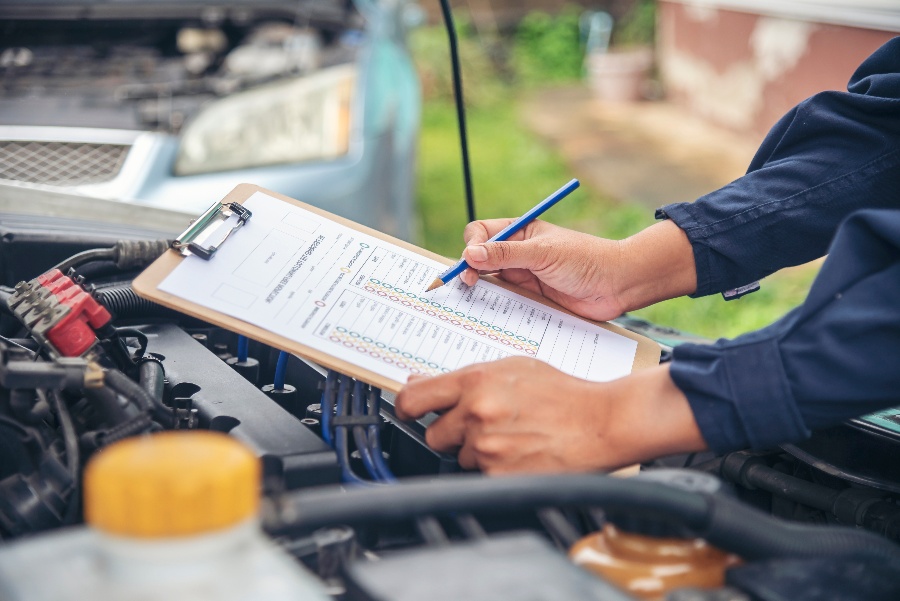
Owning and maintaining your fleet of vehicles can be very expensive. When you aren't using your vehicles, however, there are simple steps you can take to help prolong the life of your vehicles and keep them in good working order until the next time you need them.
This post looks at four ways to maintain your fleet vehicles when they're not in use.
Fuel Tanks and Systems
Fuel tanks are the lifeblood of any fleet vehicle. Without fuel, a vehicle can't go anywhere. This is why it's essential to keep them in top condition. One way you can do this is by checking the fuel tank and system for leaks or damage every time you fill up with gas. If you find anything unusual, report it to your mechanic as soon as possible.
Finally, fill your gas tank. It might seem like common sense, but not filling your gas tank when it's low will have serious consequences. For one thing, vehicles need enough gasoline to work properly; if they run out, they'll stop running. Secondly, running out of gas leaves a space that causes condensation that corrodes metal parts in the engine. To avoid these problems, always remember to fill up when your car hits 1⁄4 or less on its gauge.
Batteries
During long storage periods, you must check your battery regularly because batteries can easily freeze over the winter months if not maintained or stored inside a heated space. Frozen batteries will need to be replaced before use. If there is any corrosion on the posts, remove them and coat them with grease or petroleum jelly (not oil). All cables should be disconnected from the posts and wrapped in an insulating material such as fiberglass cloth to prevent corrosion during storage. Be sure the terminals on both ends of each cable are clean, dry, and free of any corrosion before re-connecting them after thawing the battery.
Tires
For many fleet managers, the best way to maintain their vehicles when not in use is by checking the tire pressure and treads and rotating the tires. This will help keep your vehicle safe on the road and save you from a costly repair or replacement. Additionally, this may require more frequent checks during certain seasons and climates due to increased changes in air pressure.
Checking the treads of your tires is important, but it's also important to look for uneven wear. This can be caused by an improper balance, worn shock absorbers, or other suspension problems that could cause your tires to wear out too quickly and make your car hard to control.
Engines
Vehicle engines are designed to be kept running while the vehicle is in use, so they're not meant to be idle. But you can do a few things with your engines when they're not in use that will keep them healthy. Here's what you need to know about how to maintain your fleet vehicles' engines when they're not in use:
1) Drain Oil: Proper engine oil circulation is crucial for an engine's health and lifespan. So it's essential to remove the oil from an engine before storing it for long periods. Draining oil also helps remove any contaminants from the engine's inside and ensures everything's fresh for your next drive. If you store your car on a concrete surface, pour a small amount of anti-freeze into the crankcase before covering up the vehicle.
2) Disconnect Fuel Lines: Diesel fuel has more viscosity than gasoline because diesel engines have higher compression ratios than gasoline-powered cars. For this reason, diesel fuel doesn't evaporate as quickly as gas. Leaving the lines connected leaves fuel susceptible to air pollution, which affects emissions and performance. To prevent this, disconnect all connections between the tank and the engine, including both fuel filters.
3) Purge Air From Engine: Keeping your diesel engine clean during storage is key to maintaining optimum performance. One way to accomplish this is by purging the air out of the system. You can buy an aerosol can to purge the air or leave the ignition on without starting the engine for 30 minutes. You should also change the oil filter since it may become clogged with dust over time. Lastly, fill up any unused space in your tanks with liquid coolant before storing them.
Bottom-Line!
You must keep your fleet vehicles maintained and safe when they're not in use. As a leader in marine transportation services for over 50 years, Wilmar knows the importance of keeping your equipment. After all, you only have one chance to make a first impression!
Get in touch with us if you need help or advice on maintaining your fleet vehicles so they're ready to go at a moment's notice. We can help identify which steps are most critical for you and provide specific recommendations on what needs to be done.







